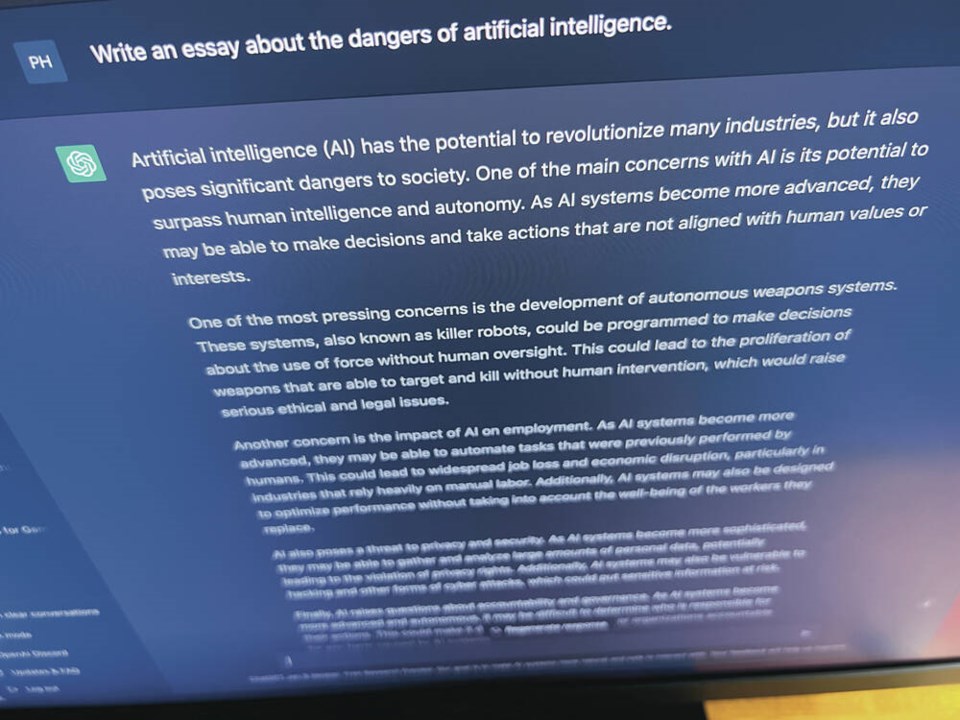I was immensely disappointed by “Reducing ‘risk of extinction’ from AI should be on par with pandemics, nuclear war, experts warn,” run on the 麻豆社国产’s website by Globe and Mail reporter Joe Castaldo [Published online May 31] for its poor understanding of the actual harms posed by so-called AI development.
Since the beginning of the year, we’ve been bombarded by similar reports about the supposed potential dangers posed by AI, often (as Castaldo notes but does not comment on) based on the words of those most deeply invested in research for commercial applications of Large Language Models (LLMs) like OpenAI’s ChatGPT. While I was pleased to see Castaldo quotes both the Distributed AI Research Institute and Emily Bender, the framing of the article buries their legitimate critiques of LLMs beneath paragraphs of largely uncritical fear-mongering.
Notably absent from this article — as well as most on the subject — is mention of the Writers’ Guild of America (WAG) strike. One of the key grievances that has led to this most recent strike action was studio attempts to undercut the work of human writers by outsourcing their jobs to LLMs. The result of this would be lower-quality writing and an even more difficult economic climate for professional writers. By making writers compete against LLMs for work, capital drives down the costs of labour as human writers endeavour to sell their work for as little as possible.
This is the real harm of AI, harm which Castaldo seems all too content to ignore. As I write this, the WAG is the dying canary warning us that the coal mine is filling with noxious gas. And instead of drawing the appropriate conclusion — that the real-world application of this technology will destroy what little economic stability the white-collar middle class still retains - we’re instead listening to the coal mine owner’s elaborate conspiracies about how the mine is filled with dangerous mole men who crave the taste of human blood.
A chatbot can’t end the world, but it can take your job. So why do we only ever hear about the former?
Claire French, Squamish




